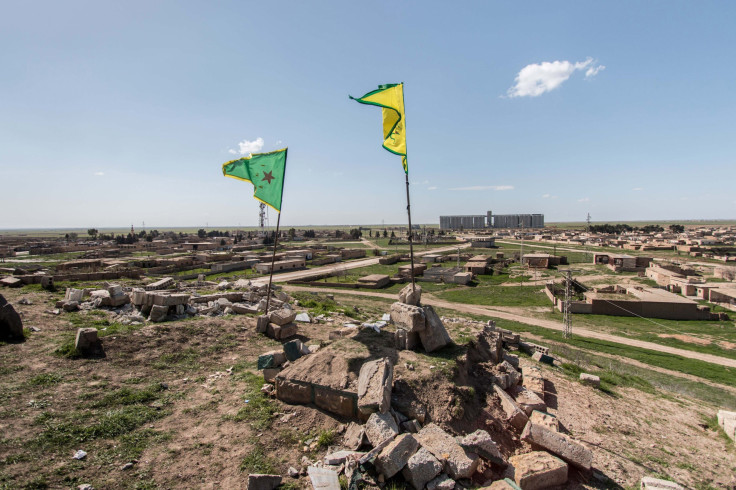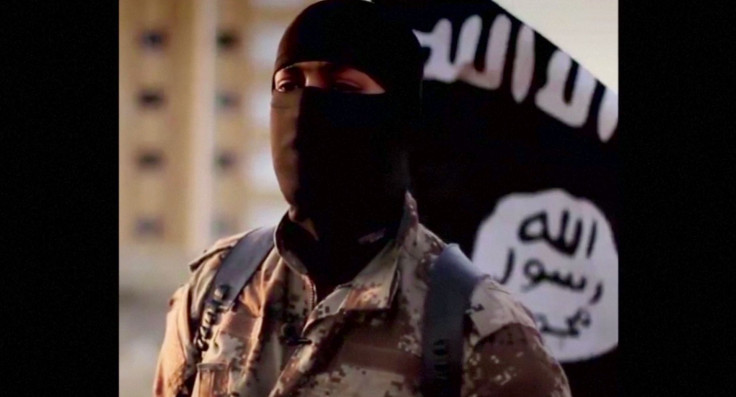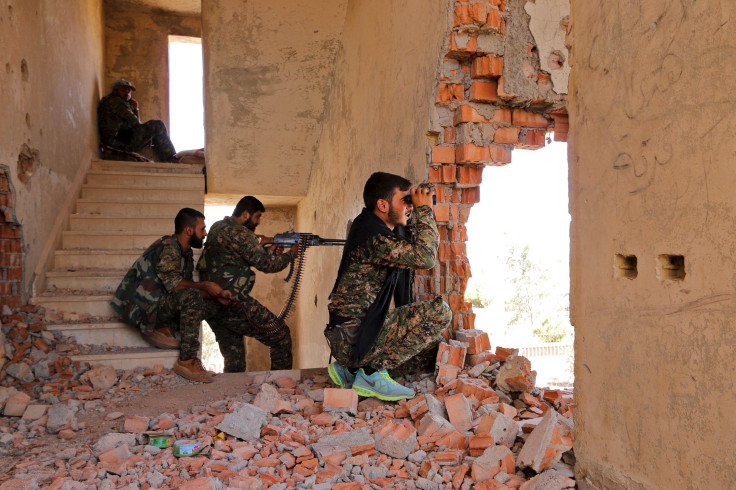Uneasy Bedfellows: The US Wants Kurdish Support In The Fight Against ISIS But Turkey Doesn't Want To Play Ball

The American-led fight against the Islamic State group, also known as ISIS, in Syria and Iraq has not been without its wobbles. The coalition, which counts 62 countries among its members, was always going to face internal rivalries and conflicts of interest. But this challenge may have reached its nadir with the U.S.’ newly stated aim to include groups of Kurds among its number.
Few Kurdish factions currently coordinate directly with the anti-ISIS coalition -- but the Kurds are keen for this to change. Widening the scope of Kurdish partnerships seems, at first, like a mutually beneficial agreement: The coalition needs effective ground forces to fight ISIS and the Kurds want weapons, training and coordination.
But it’s not that simple. Some Kurdish groups are designated terrorist organizations under international law and are longtime adversaries of Turkey, a NATO member and key U.S. ally in the coalition. This puts America in a bind.
“Political pragmatism requires that the Kurds remain part of the international coalition fighting ISIS. Politics is all about interests, not friendship,” Mohammed Shareef, a visiting lecturer at Britain's University of Exeter, told International Business Times. "The U.S. recognizes that the Kurds are not hostile to America and its interests, that things get done with the Kurds. Promises are kept.”
The Kurds are likely to have an even bigger part to play as the U.S. and Turkey finalize a plan to create a “buffer zone” in northern Syria, near the border with Turkey. Stretching east about 68 miles from the Euphrates River, the territory used to be under the ISIS flag but today is mostly controlled by Syrian Kurdish People’s Protection Units (YPG) fighters and Free Syrian Army units.
“It is completely wise and totally in the interest of the Kurds to capitalize on this alliance and maintain this direct channel with America,” Shareef said.
One Drawback
The YPG may seem like an ideal partner for the international coalition, but there is one drawback: It is aligned with the Turkish Kurdistan Workers' Party (PKK), a U.S.-designated terrorist group and sworn enemy of Turkey. Last week, Turkey launched an airstrike campaign on PKK positions in northern Iraq, effectively ending the truce that both factions had observed since 2013.
Despite Turkey’s strong opposition to them, the U.S. has not given up on supporting Kurdish factions in Iraq and Syria. The coalition has been most effective fighting ISIS when supporting local ground forces with airstrikes. Losing Kurdish ground forces could be a major setback in the fight against ISIS.
"Syrian Kurds in northern Syria working with, and alongside in many instances, Free Syrian Army groups have been very effective against Daesh [the Arabic acronym for ISIS],” a State Department official said in a background media briefing. "That will continue because our effort is to defeat Daesh, and that’s a goal that ... we share with Turkey."

Some Syrian Kurds claim that the U.S. has already entered a “military alliance” with YPG fighters despite the militant group’s ties to the PKK and certain factions of the Free Syrian Army.
“The military alliance between [the U.S.], the YPG and factions of the Free Syrian Army is for the war on Daesh in the Euphrates area. ... It has achieved clear success and for this I do not think it will be affected by the Turkish-U.S. agreement,” Newaf Xelil, a spokesman for the Syrian Kurdish Democratic Union Party (PYD), the political wing of the YPG, told IBTimes.
Earlier this year, Kurdish YPG fighters and Syrian rebels won one of the longest battles against ISIS in the Syrian-Turkish border town of Kobani with the support of U.S. coalition airstrikes.
But Capt. Nikolaj Thide, a public affairs officer for the American-led anti-ISIS coalition, told IBTimes that “the coalition does not coordinate airstrikes with YPG forces in Syria.”
When asked if the U.S. supplied weapons directly to the YPG, Thide said the coalition supplies only to the Iraqi government, "who then distributes the weapons and equipment to military and other security forces of, or associated with, the government of Iraq, including Kurdish and tribal security forces.”
Coordination with Syrian Kurdish factions, if it is to happen at all, must go through a third party. In most cases, the Iraqi government or the Kurdistan Regional Government, the official ruling body of northern Iraq, act as mediators.

The Joint Task Force for the coalition, based in Irbil, in the Kurdistan area of Iraq, is responsible for training Iraqi military and Kurdish fighters to combat ISIS. So far, of the nearly 11,000 Iraqi Security Forces trained, more than a third have been Kurdish fighters.
'Recognize Our Rights'
Now some Kurdish politicians are demanding direct communication with the coalition to sidestep third parties who may not have their best interests at heart.
“The U.S. is obliged to recognize our rights and our usurped nationality,” Polat Can, the YPG representative to the international coalition, told the Washington Kurdish Institute. “All states are required to provide logistical, military, and moral support for YPG.”
One way to do that without angering Turkey would be to deploy Syrian Kurdish fighters -- as opposed to Turkish Kurds. The Peshmerga Rojava Kurdish group have fighters from Iraq to northern Syria and are reportedly training with the American-allied Kurdish fighters in Iraq.
“The Kurds in Syria have another card they can play. If Peshmerga Rojava come back to Syria they can control the buffer zone,” said S. Kurdax, a Syrian Kurdish activist who fled the regime when protests began four years ago. “They are not radical and they are Kurds.”
This is certainly a tempting offer for the U.S., but Turkey remains to be convinced. Their respective presidents may be standing together, but the Kurdish problem is not one that's likely to go away anytime soon.
© Copyright IBTimes 2025. All rights reserved.






















